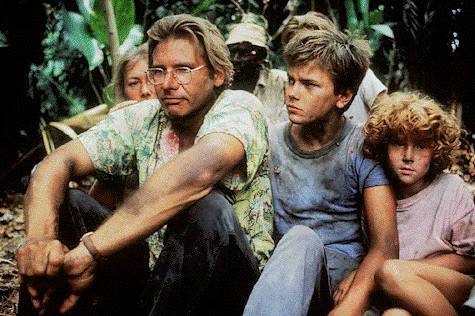Samuel, however, loses his innocence early in the film when the inciting action, the murder of the police officer in the train station bathroom, takes it from him. In this scene, his loss of innocence is most accurately conveyed through the look in Samuel's eyes, which are conveying all of the conflicting feelings he has at the time: fear, confusion, uncertainty. In Samuel's eyes, you can see that he has witnessed something most people never see--especially the people in the Amish community in which he was raised.

After this scene, Samuel also begins to show a curiosity and affinity for the "English" world. This is most evident when he finds John Book's bullets, with obvious amazement, studies them. This is a scene he shares with his grandfather Eli (the patriarch of the film). With Samuel still close to him physically in the scene (and emotionally, as well), Eli warns Samuel of the dangers of the bullets and the "English" world of John Book and Philadelphia. This scene, with the proxemics of the characters, shows how Samuel is still close with his grandfather, but is also experiencing a loss of confidence and safety in the world he grew up in.
Charlie's loss of innocence and confidence in the world he once knew is, like Samuel's, also conveyed in a scene with his patriarch (his father, Allie). When the ice maker catches fire and blows up, Charlie observes his father become more concerned with the death of his invention than with the death of human beings. It is obvious in a look Charlie gives his father in this scene that what Charlie used to believe was genius is actually mental and emotional instability. Allie looks particularly insane in this scene, with most of his face drowned by the darkness and only the blaze of the fire reflected in his glasses. Charlie's face is also mostly covered in darkness, again except for his eyes, where the realization about his father's true nature is learned. The scene shows Charlie look over his shoulder at his father (with Allie just in the corner of the scene) and Charlie almost winces and pulls away from Allie. Charlie is also the dominant feature in the scene, which conveys to the audience that Charlie will have to defeat is father, save his family, and become the hero in the end.

You need to check to make sure that the pictures in your blog are not broken. You should try to find the pictures you are discussing. If you were to use the MC scene above, you could see the devastation, Charlie's look of disgust with his father, and the blank stare on the twin's face that indicates how the family has been torn apart.
ReplyDelete